MARILYN STAFFORD FOTOREPORTAGE AWARD ANNOUNCES WINNER OF 2024 PRIZE
WITH HONOURABLE MENTIONS AWARDED TO THREE SHORTLISTED PHOTOGRAPHERS
Photographer Isabella Franceschini has been awarded the prestigious Marilyn Stafford FotoReportage Award 2024, for her work:
‘The Leap of Fish that Dream of Flying’.
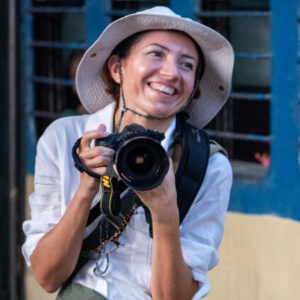
Isabella Franceschini is an Italian freelance photographer, contributor for Parallelozero photojournalism agency and Lowepro Ambassador. After a degree in Economics from Bologna University, she attended a one-year masterclass of photojournalism in Rome and, since then, photography has become a fundamental part of her professional life. Isabella is currently developing long-term projects primarily inspired by what influences human beings and their relationships as well as issues related to environmental sustainability. In recent years, her projects have been featured in The Washington Post, Der Spiegel, l’Espresso, la Repubblica, MarieClaire, Vanity Fair. She has contributed to a Telethon Foundation Campaign about rare genetic diseases. She has received multiple awards such as WRA Documenting Humanity 2022, 21st Julia Margaret Cameron Award, ISPA Award 2023, ZEKE Award 2024. Her works were exhibited in private galleries and public spaces such as the Festival of Ethical Photography in Lodi (Italy) Fotonostrum (Barcelona) Photoville (New York).
‘The Leap of Fish that Dream of Flying’ is a series that acknowledges our changing and mutual relationship with the environment and sustainable development. Franceschini’s work focuses on the decommissioning of the Polesine Camerini thermoelectric plant, the largest in Italy, now inactive, which is set to be transformed into an eco-friendly tourist facility based on a project involving local institutions and the local population.
The project documents the conflicting environmental challenges of this area since 2015. Humans have both benefited from this environment, through activities such as mussel farming, and yet also exploited it with the industrial site of the thermoelectric power plant. This transformation enables a renewed and balanced coexistence between humans and nature, paving the way for a future of unexplored and fertile possibilities.
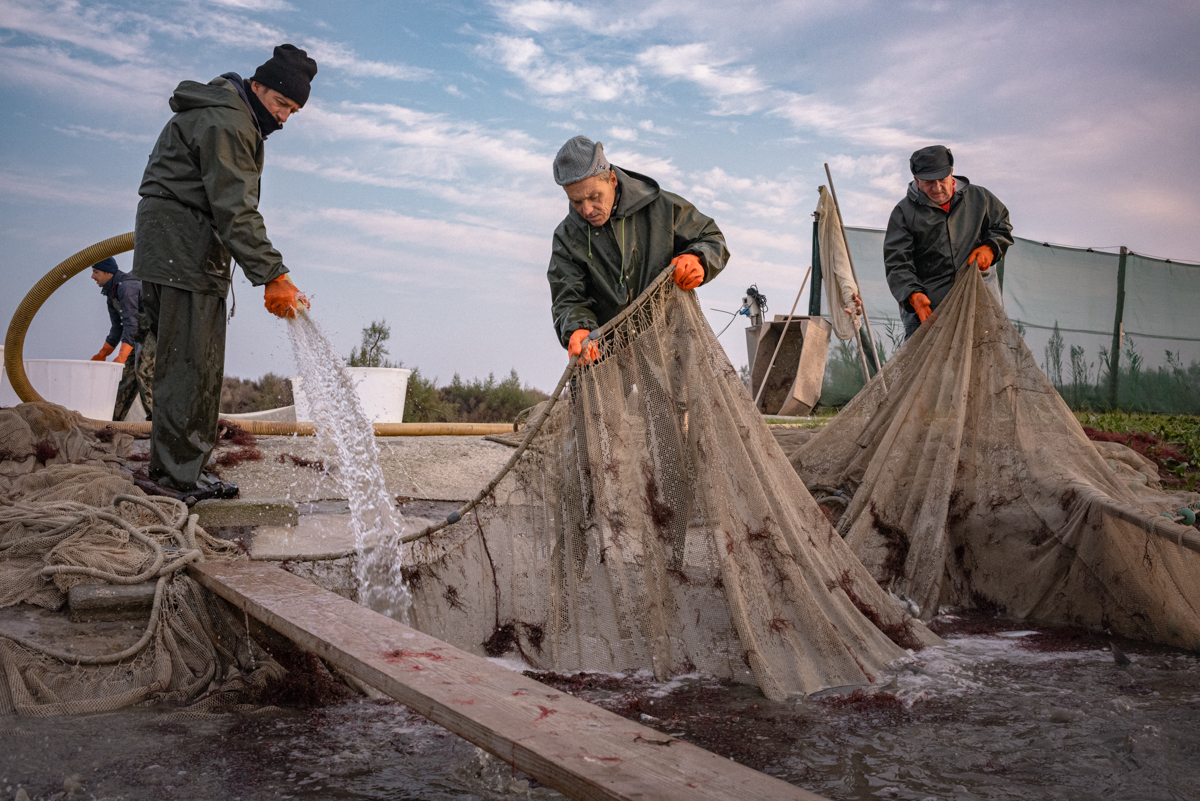
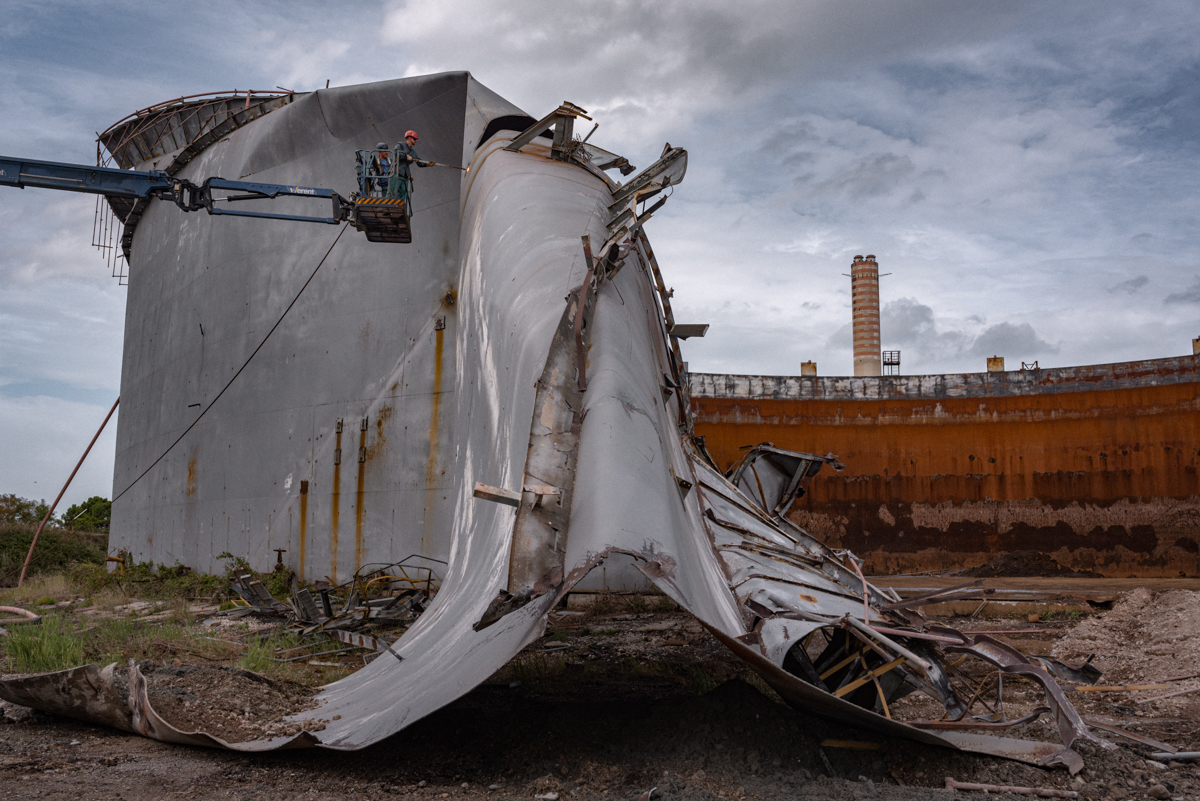
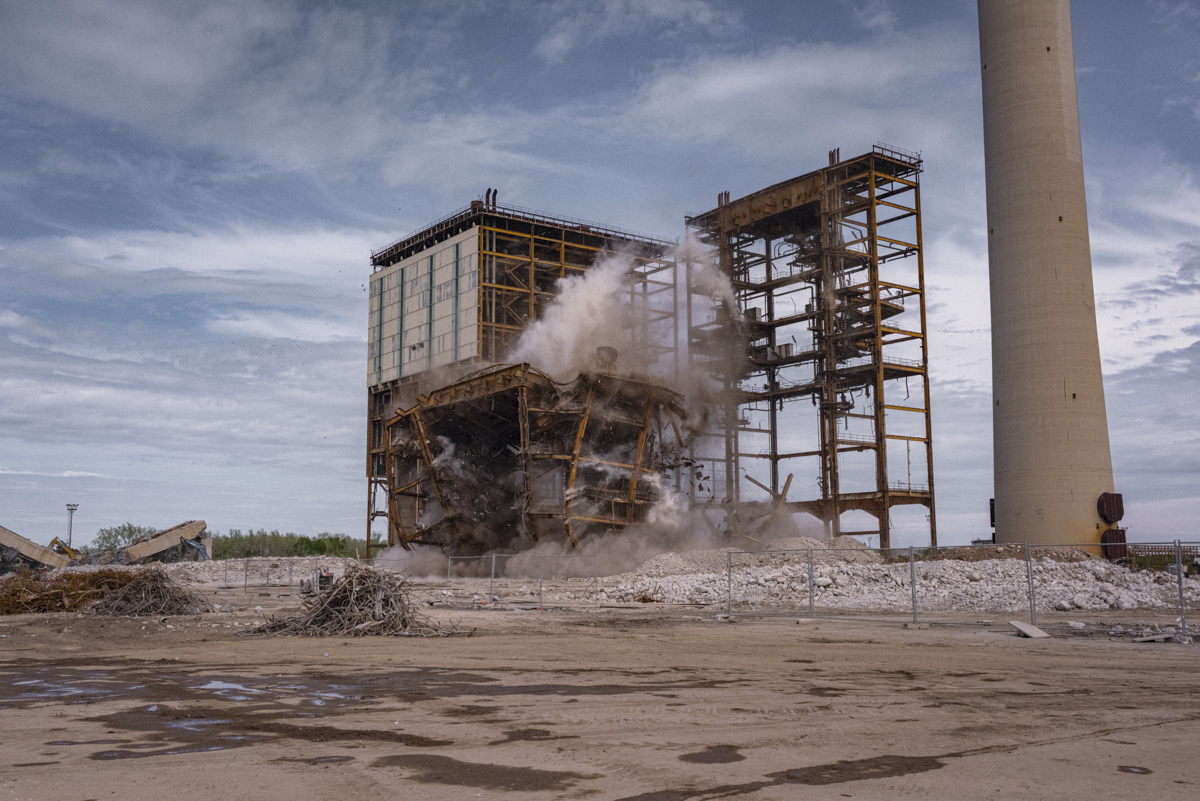
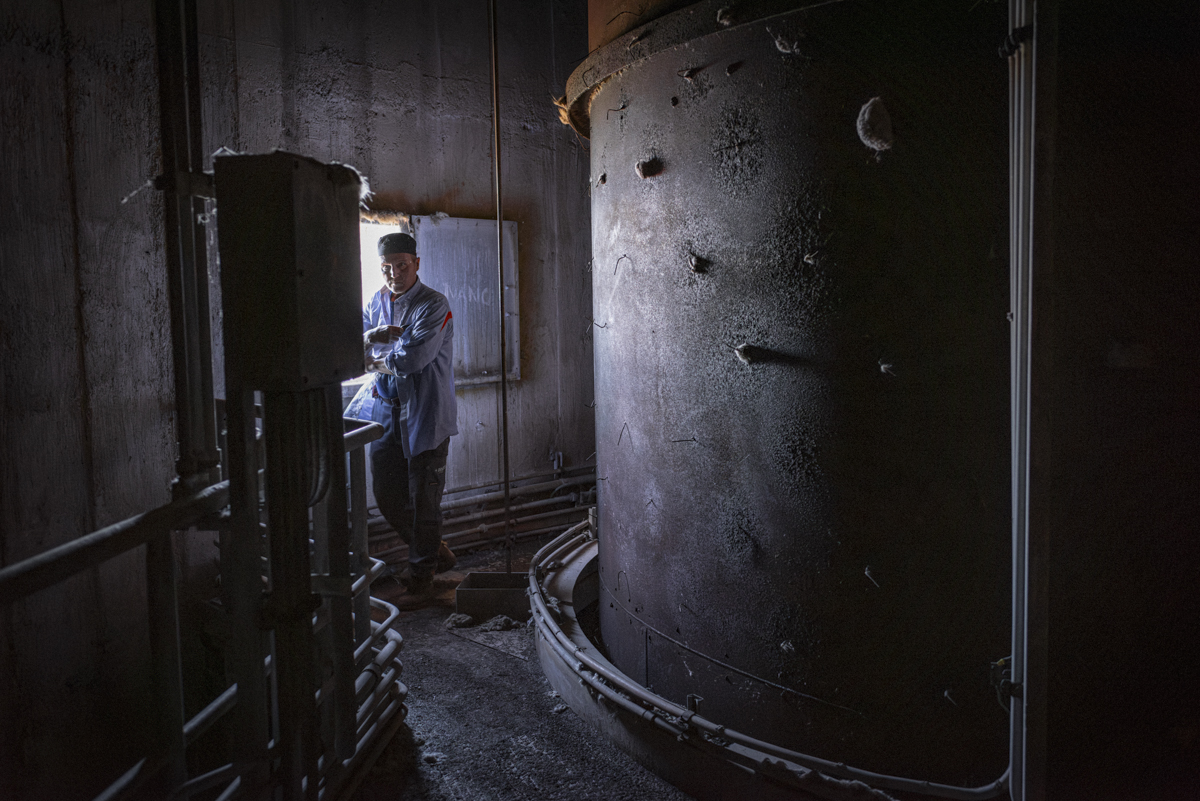
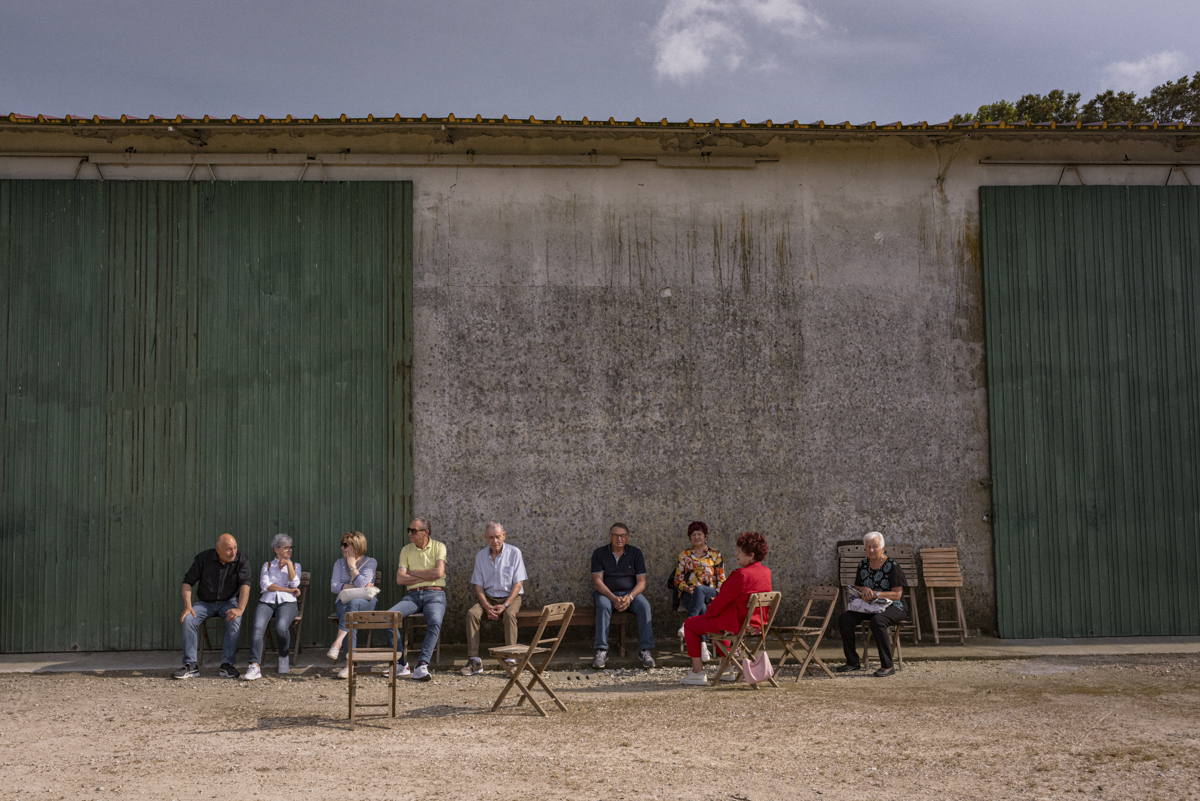
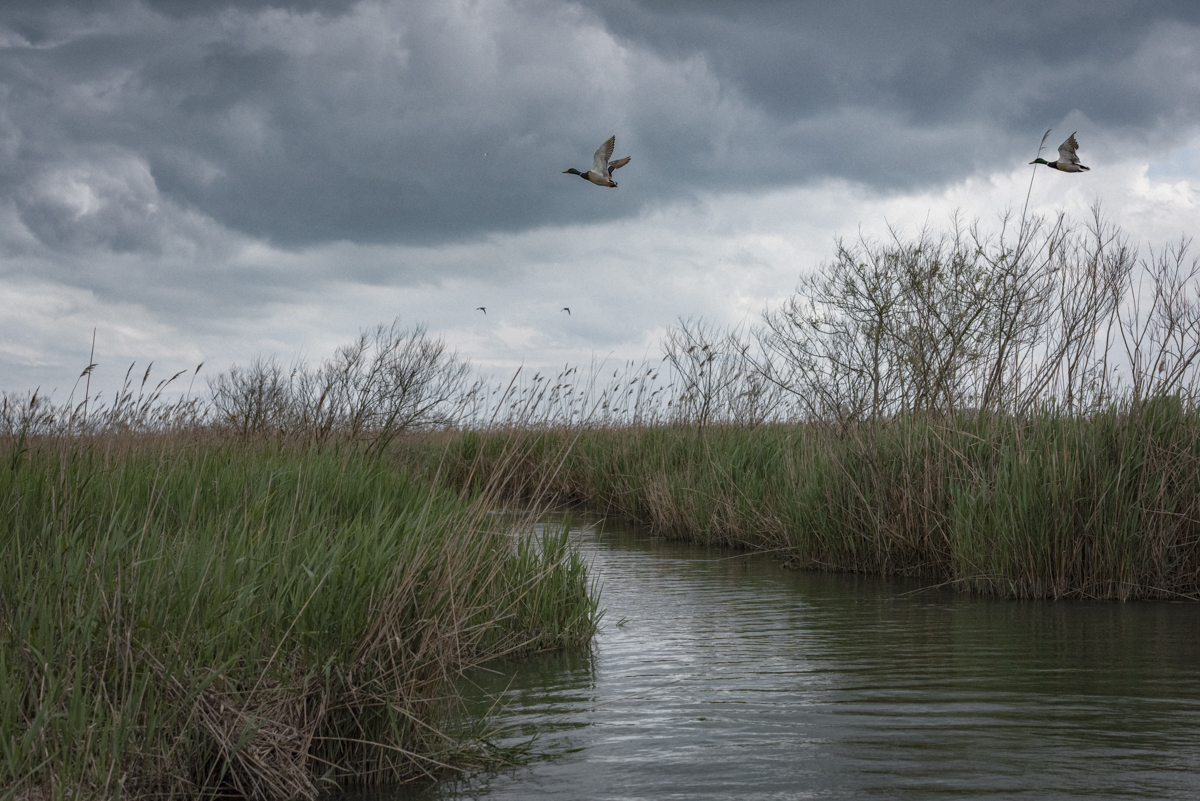
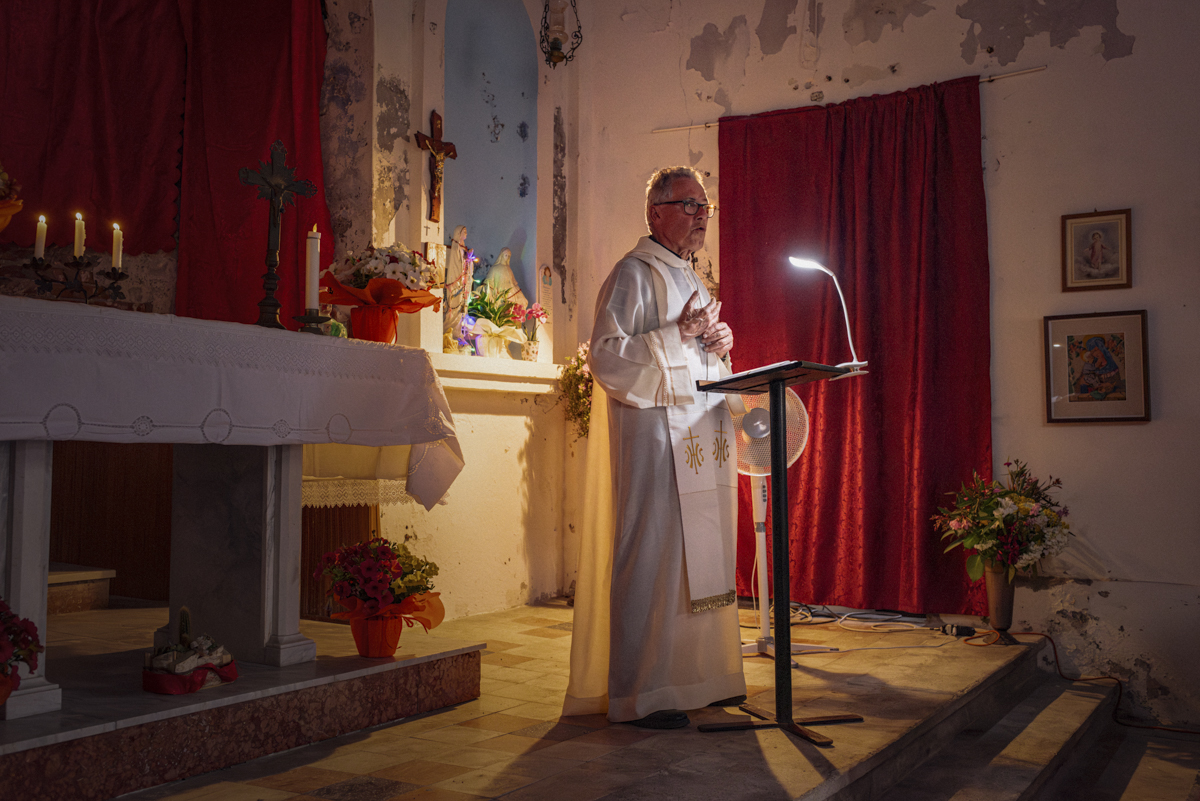
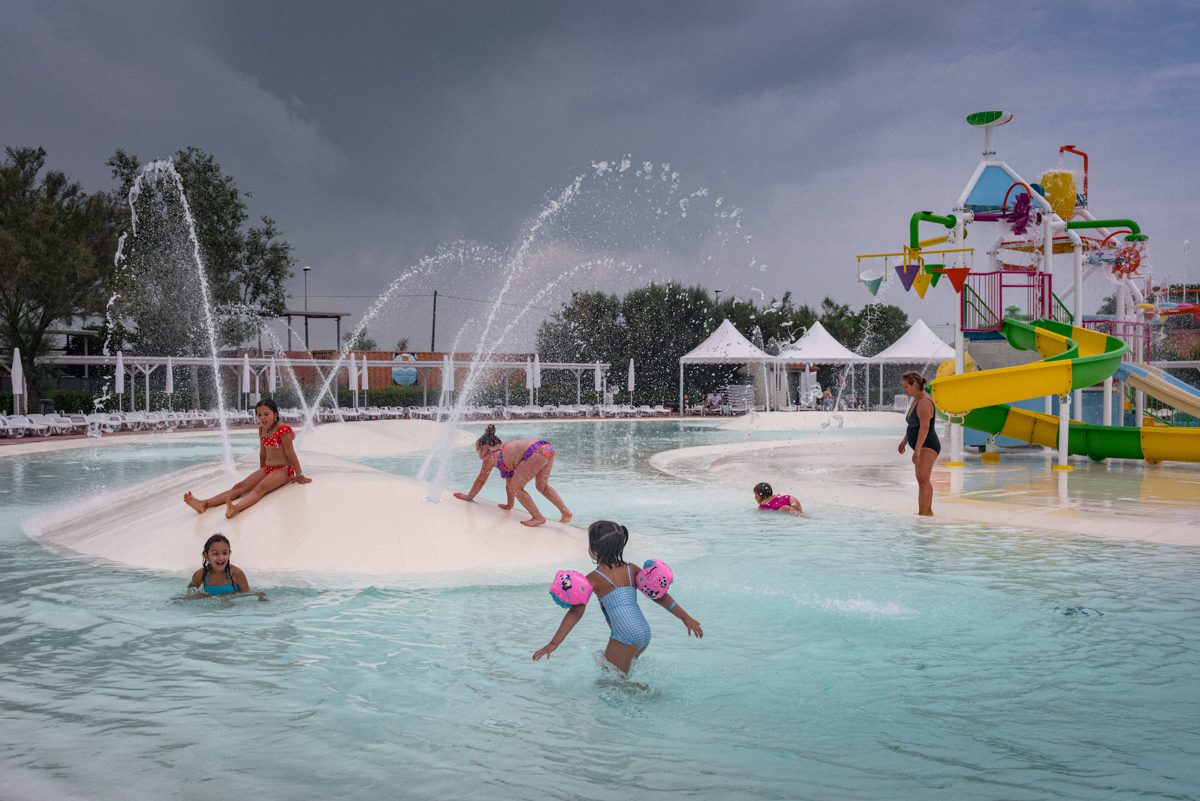
“WE EXTEND OUR HEARTY CONGRATULATIONS TO ISABELLA FRANCESCHINI FOR WINNING THIS AWARD WITH HER IMPRESSIVE AND VITALLY IMPORTANT PROJECT – WE VERY MUCH LOOK FORWARD TO SEEING HOW THE WORK DEVELOPS”
– THE JURORS OF THE MARILYN STAFFORD FOTOREPORTAGE AWARD 2024
HONOURABLE MENTIONS
Andrea Hernández Briceño has been awarded an Honourable Mention for her work
‘Luna de Agua’
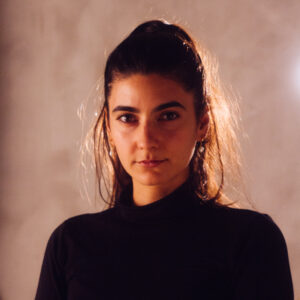
Andrea Hernández Briceño is a Venezuelan journalist, visual storyteller, TEDx speaker and National Geographic explorer based in Caracas. She tells representative stories about gender, environment and social phenomena that put the dignity of participants in the centre of the narrative. Her projects have been exhibited in New York, Arles, and Mexico City. She was awarded two POY Latams (2023). Hernández Briceño co-founded the all women collective Ayün Fotógrafas and the Ojo Pelao free workshop that makes photography education more accessible in her country. She has also taught at the RMTF school and MiraVzla. She believes in the importance of working with communities through horizontal collaborative practices that combine education and storytelling initiatives. Her work explores narratives that search for humanity in the space between seemingly opposing ideas as a result of growing up and living in Venezuela, a place of contradictions.
LUNA DE AGUA
“I fish like a woman, not like a man. And I have my strength as a woman, which is just as important,” says fisherwoman Doris Duque. She practices sustainable fishing and teaches it to other women so that they can become economically independent in the hostile context of the Venezuelan Caribbean coast.
“Luna de agua” is an impact-led project that merges storytelling and community building while documenting the feminisation of the fishing trade and the women’s sustainable approach to their practice. This multi-format strategy combines still photography, video, audio and impact measuring tools to explore how women went from weaving fishing nets to using them at sea and what this change means for their communities in Aragua, Venezuela. The storytelling aspect will lead to an educational component in which the fisherwomen choose a skill that will improve their livelihoods and trade while protecting the ecosystems they inhabit.
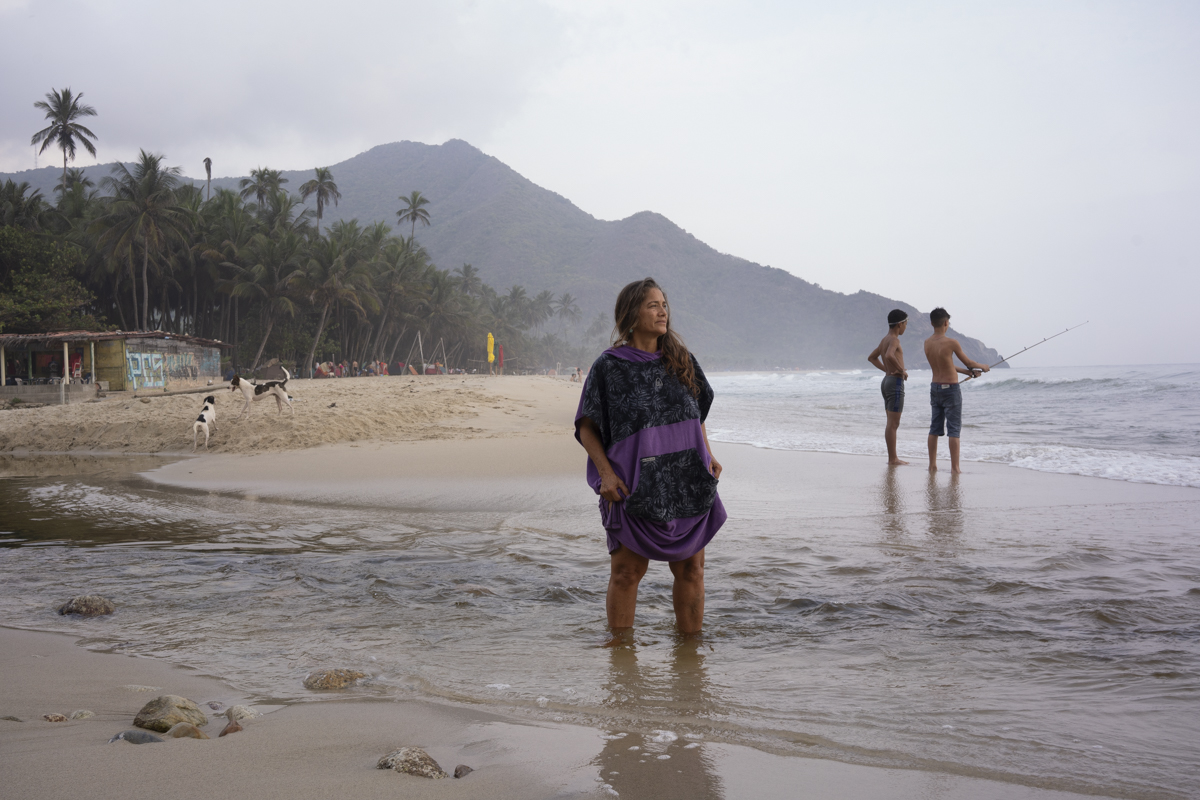
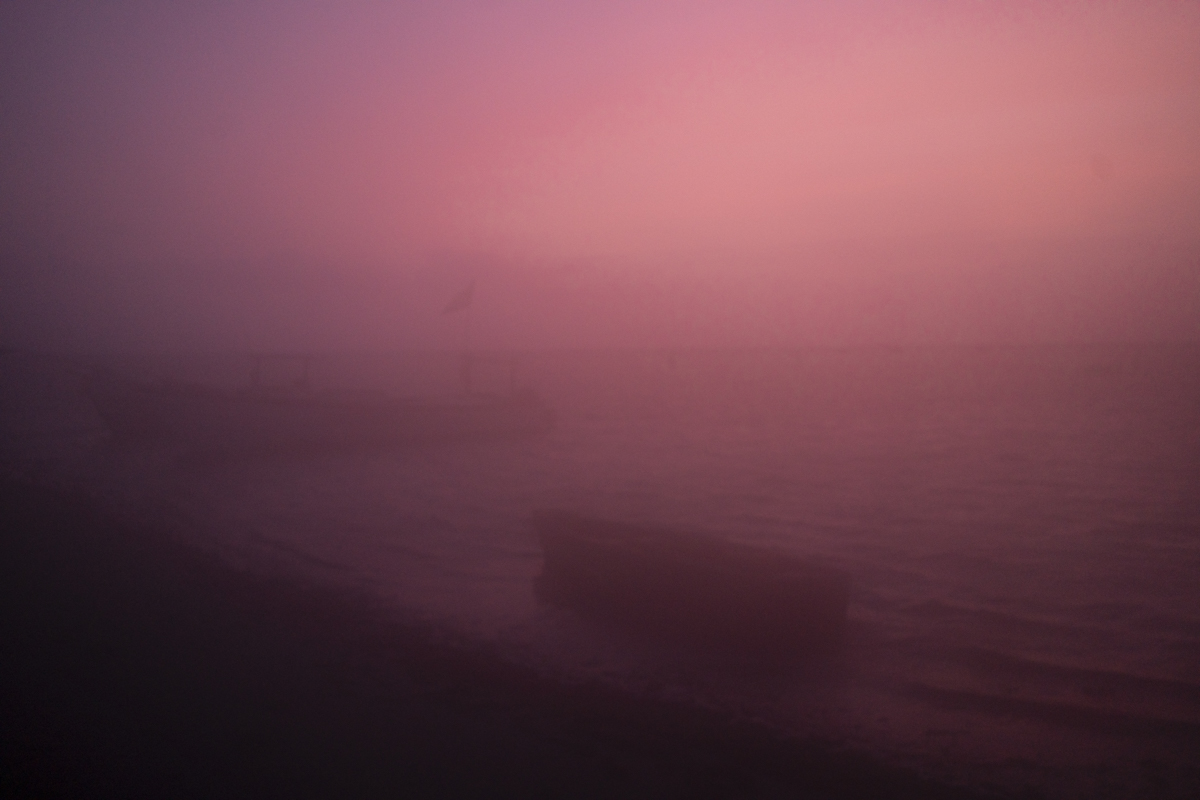
Jennifer Carlos has been awarded an Honourable Mention for her work
‘THE ODYSSEY: From the Legion to Paralympic Hope’
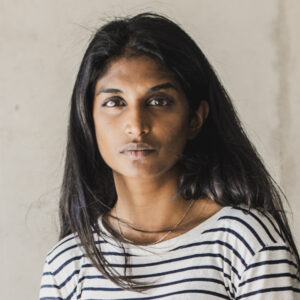
A French freelance photographer based in Paris, Jennifer Carlos graduated from the DU Photodocumentary and digital writing of the University of Perpignan and holds a DNSEP (Master II) from the ENSA of Bourges and a year at the ENSA of Nice (in France). She has combined her studies with 18 years as a social worker, an experience that deeply permeates her photographic practice. Through her photographs, she tells stories of social exclusion and migration. In recent years, she has documented Senegalese migration and its consequences, highlighting the intimate and emotional aspects of individuals. In 2021, she joined the RÉA agency and participated in the mentoring of the ITEM collective in 2022/2023. Her work has been featured in international media and exhibited in France and the West Bank. and she received a Special Mention at the All About Photo Awards 2024 and was a finalist in the World Press 2024, “story” category.
‘THE ODYSSEY: FROM THE LEGION TO PARALYMPIC HOPE’
Every year, thousands of Senegalese risk their lives trying to migrate to Europe. Some, like Macoumba, decide to return to their country after years abroad. Macoumba made this choice to contribute positively to the development of his country of origin. His journey, marked by resilience in the face of adversity, demonstrates that a positive outcome to returning home is possible. Seriously injured in 2008 while working for the French Foreign Legion, Macoumba showed incredible strength by returning to Senegal despite the stigma related to disability. There, he now engages in activities related to the education of children and the preservation of the environment. He also campaigns for the inclusion of people with disabilities in sport and participates in handbike racing. It is through this discipline that he will endeavour to represent Senegal with dignity at the 2024 Paralympic Games. By documenting his journey and actions, this story raise awareness about the challenges of immigration and disability from an inspiring perspective.


Lys Arango has been awarded an Honourable Mention for her work
‘Hunger Recipes’
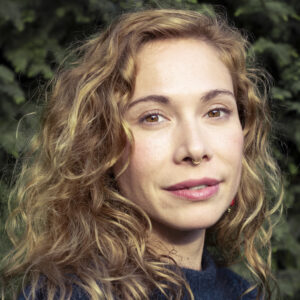
Lys Arango is a Spanish documentary photographer and writer, and a member of VU’ Agency. Originally from Madrid and based in Paris, she undertakes self-initiated research projects focusing on environmental and social issues. Arango builds her work on genuine relationships with her subjects through time, trust, and understanding. Since 2019, she has been working on a global hunger project, gathering stories, testimonies, and images from regions affected by armed conflicts and ecological challenges. Her work has received significant recognition, including becoming a National Geographic Explorer in 2024 and receiving the Pictures of the Year award in 2023 for her project “The River Ran Black.” Her photographs have been exhibited at various festivals and published by international media such as CNN, Le Monde, BBC News, El País Semanal, and Marie Claire Magazine.
HUNGER RECIPES
‘Hunger Recipes’ addresses the often-hidden issue of hunger in France, where 22% of households experience food insufficiency, yet fewer than 5% seek assistance. This project illuminates the human stories behind these statistics, showcasing recipes created from limited, often unchosen ingredients. Unlike typical cookbooks, it reveals the reality of food scarcity. The project explores how food culture for many has shifted to a culture of hunger, documenting the strategies people use to feed their loved ones with meagre resources. It also includes recipes from charitable associations made from unsold or near-expiry date products. Beyond being a cookbook, “Hunger Recipes” is a powerful reminder of the daily struggles of many French households. It invites readers to connect with these experiences through culinary photographs and narratives, emphasising resilience and hope. By sharing these stories, ‘Hunger Recipes’ aims to raise awareness and inspire action to combat food insecurity.
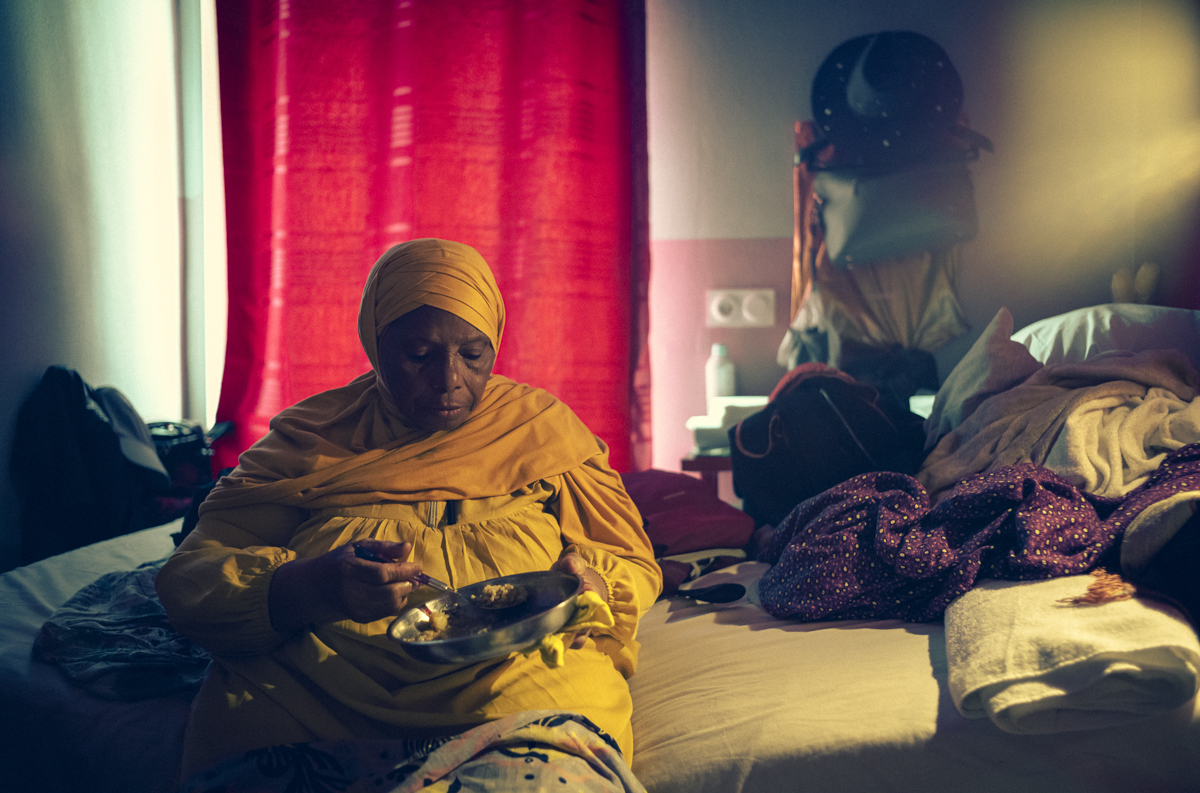
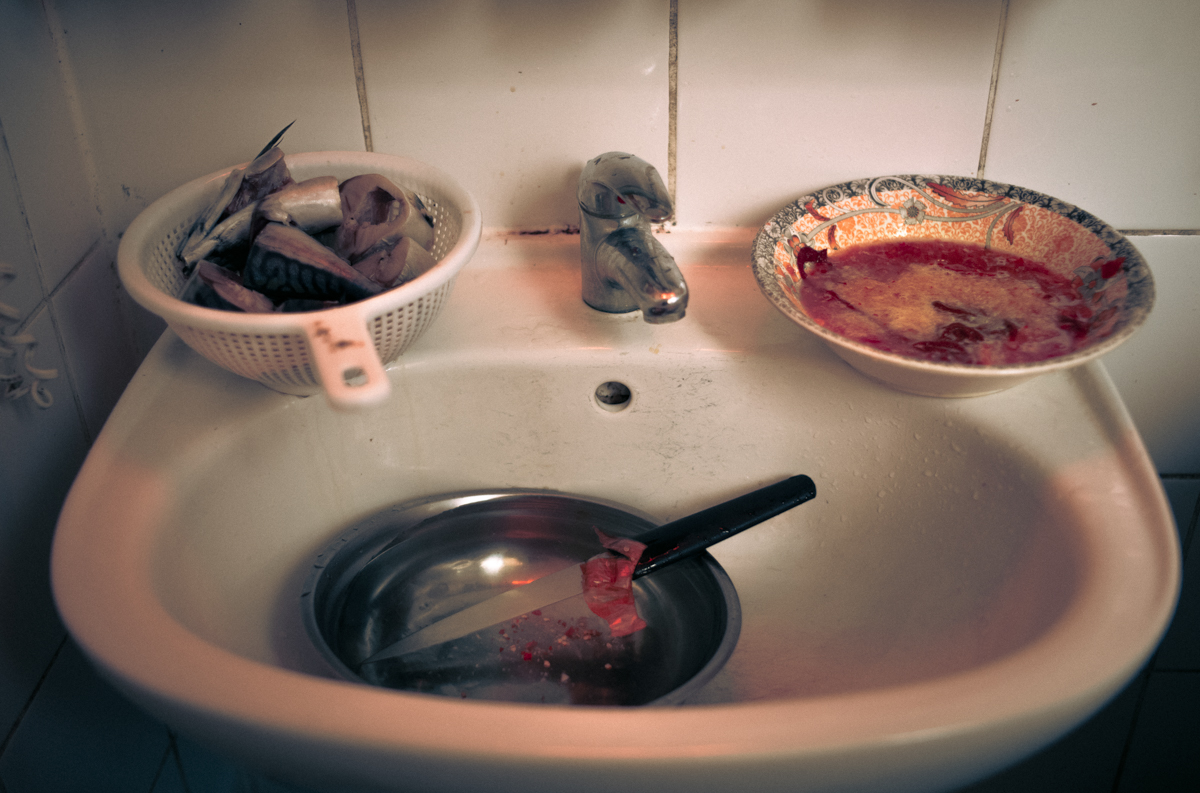
“HUGE CONGRATULATIONS TO ALL THREE PHOTOGRAPHERS AWARDED AN HONOURABLE MENTION. WE HOPE THIS PROVIDES YOU WITH ENCOURAGEMENT AND RECOGNITION TO CONTINUE YOUR IMPRESSIVE WORKS.”
– THE JURORS OF THE MARILYN STAFFORD FOTOREPORTAGE AWARD 2024
Julian Harvie, Marketing Director, Nikon Northern Europe, says:
“Once again, we have been moved by this year’s Winner and Honourable Mentions of the Marilyn Stafford FotoReportage Award. Franceschini’s ‘The Leap of Fish that Dream of Flying’ is as inspiring as it is thought-provoking, challenging even through a single image our perception of the right relationship between humans and nature. They say great photography asks great questions, and the story of her work does just that. Nikon is proud to invest in her story, as well as all those shortlisted for this important award.”
Nina Emett, FotoDocument founder, Curator, Photographer, says:
‘‘There were so many outstanding entries to the Marilyn Stafford FotoReportage Award 2024 from all over the world, and it is clear that any one of the shortlisted photographers deserves wide recognition. But the jurors agreed that Isabella Franceschini’s project ‘The Leap of Fish that Dream of Dying’ stood out for its hauntingly beautiful images, eloquent narrative storytelling, and environmental importance and replicability. We wish Isabella our hearty congratulations for this incredible achievement and we look forward to witnessing how the story progresses. We would also like to offer our congratulations to those awarded an Honourable Mention – Andrea Hernández Briceño, Jennifer Carlos and Lys Arango. We extend our sincere gratitude to our friends at Nikon for their continued support of this unique and impactful award.”
PLEASE FOLLOW OUR POSTS AT @fotodocument to find out more about the Winner and Honourable Mentions.



